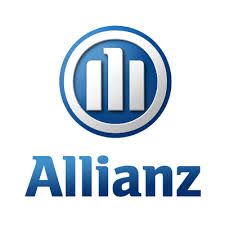One of the world’s largest insurers, Allianz, has announced it will immediately cease insuring single coal-fired power plants and coal mines and further plans to phase out all coal risks by 2040.
 In 2017, Allianz was ranked as one of the top three insurers on the Forbes Global 2000 list of the world’s most powerful companies — alongside Ping An Insurance Group and Axa Group — and is ranked as one of the world’s largest asset managers, with third-party assets of €1,448 billion under management at the end of 2017. Spread over more than 70 countries and achieving total revenues of approximately €126.1 billion in 2017, Alliance is a leading financial presence around the world.
In 2017, Allianz was ranked as one of the top three insurers on the Forbes Global 2000 list of the world’s most powerful companies — alongside Ping An Insurance Group and Axa Group — and is ranked as one of the world’s largest asset managers, with third-party assets of €1,448 billion under management at the end of 2017. Spread over more than 70 countries and achieving total revenues of approximately €126.1 billion in 2017, Alliance is a leading financial presence around the world.
Thus, when the company makes an internal policy move, the world watches.
Towards the end of 2015 Allianz announced that it would stop financing coal-based business models — including companies that derive more than 30% of their revenue from coal mining, or generate over 30% of their energy from coal. Allianz directly linked the decision to the 2°C global warming target of the Paris Climate Agreement and “the economic risks involved” in remaining invested in coal-related businesses.
A week later Allianz, along with Dutch pension giant ABP, announced that together they would join the Portfolio Decarbonization Coalition — which describes itself as “a multi-stakeholder initiative that will drive GHG emissions reductions on the ground by mobilizing a critical mass of institutional investors committed to gradually decarbonizing their portfolios.”
Fast-forward a few years and Allianz revealed on May 4th that it was going a step further in its fight against climate change and coal usage — several steps further, in fact.
 The headline announcement is that Allianz will, effective immediately, cease offering insurance for single-site/stand-alone coal power plants or mines. Allianz will also gradually phase out all coal-based risks from its Property & Casualty (P&C) insurance portfolios by 2040. According to the company’s policy memo outlining its move:
The headline announcement is that Allianz will, effective immediately, cease offering insurance for single-site/stand-alone coal power plants or mines. Allianz will also gradually phase out all coal-based risks from its Property & Casualty (P&C) insurance portfolios by 2040. According to the company’s policy memo outlining its move:
Single-site/stand-alone coverage means the covering of loss and damages for a single power plant and/or mine (green- and brownfield) for an insured, as well as for offering guarantees (bonds) to a respective client. The exclusion is applicable for new (first time) contracts and the renewal of contracts
“Climate change generates enormous economic and social risks. It is already harming millions of people today,” explained Oliver Bäte, CEO of Allianz SE. “As a leading insurer and investor, we want to promote the transition to a climate-friendly economy.”
Allianz also outlined its larger Coal Phase-Out Plan. As mentioned, Allianz currently prohibits investments in coal-based business models — based on a 30% revenue or energy rule. It has subsequently further clarified its position, defining coal-based business models as:
- Energy generation from coal:
- deriving 30% or more of their generated electricity from thermal coal and/or
- planning more than 0.5 gigawatts (GW) of thermal coal capacity additions which are not in line with the 2°C ceiling and/or
- having to retire more than 50% of their generation capacities in the next ten years to be in line with the 2°C ceiling
- Coal mining:
- deriving 30% or more of their revenues from mining thermal coal

The company’s criterion have been based on the International Energy Agency’s World Energy Outlook and will allow for very few exceptions — exceptions which will only be approved on a case-by-case basis. Further, Allianz’ Coal Phase-Out Plan will reduce the 30% thresholds by 5% to zero by 2040, with the next adjustment coming within the next five years.
“We are convinced that our approach will further improve the risk/return profile of our portfolio in the long term, and that we will strengthen our position as a forward-looking investor,” added Dr. Günther Thallinger, member of the Board of Management of Allianz SE and responsible for investments and ESG. “As a long-term investor, we want to shape the change to a climate-friendly economy together with our clients. We will thus also strategically develop our investment opportunities in new technologies.”
Finally, and well in line with the company’s policy decisions, Allianz also announced that it was joining the Science Based Target Initiative. The company’s aims are to work together with partners from science, civil society, and economy within the SBTi to integrate the 2°C target across all of Allianz Group’s relevant business activities.
“We will actively inform our clients about the short-term implications and long-term strategic changes. We will work together closely with them to find suitable solutions that enable a joint path towards a low-carbon economy,” said Chris Fischer Hirs, CEO of Allianz Global Corporate and Specialty, the global industrial insurer of the Allianz Group, which will implement the new guidelines as one of many Allianz entities worldwide.